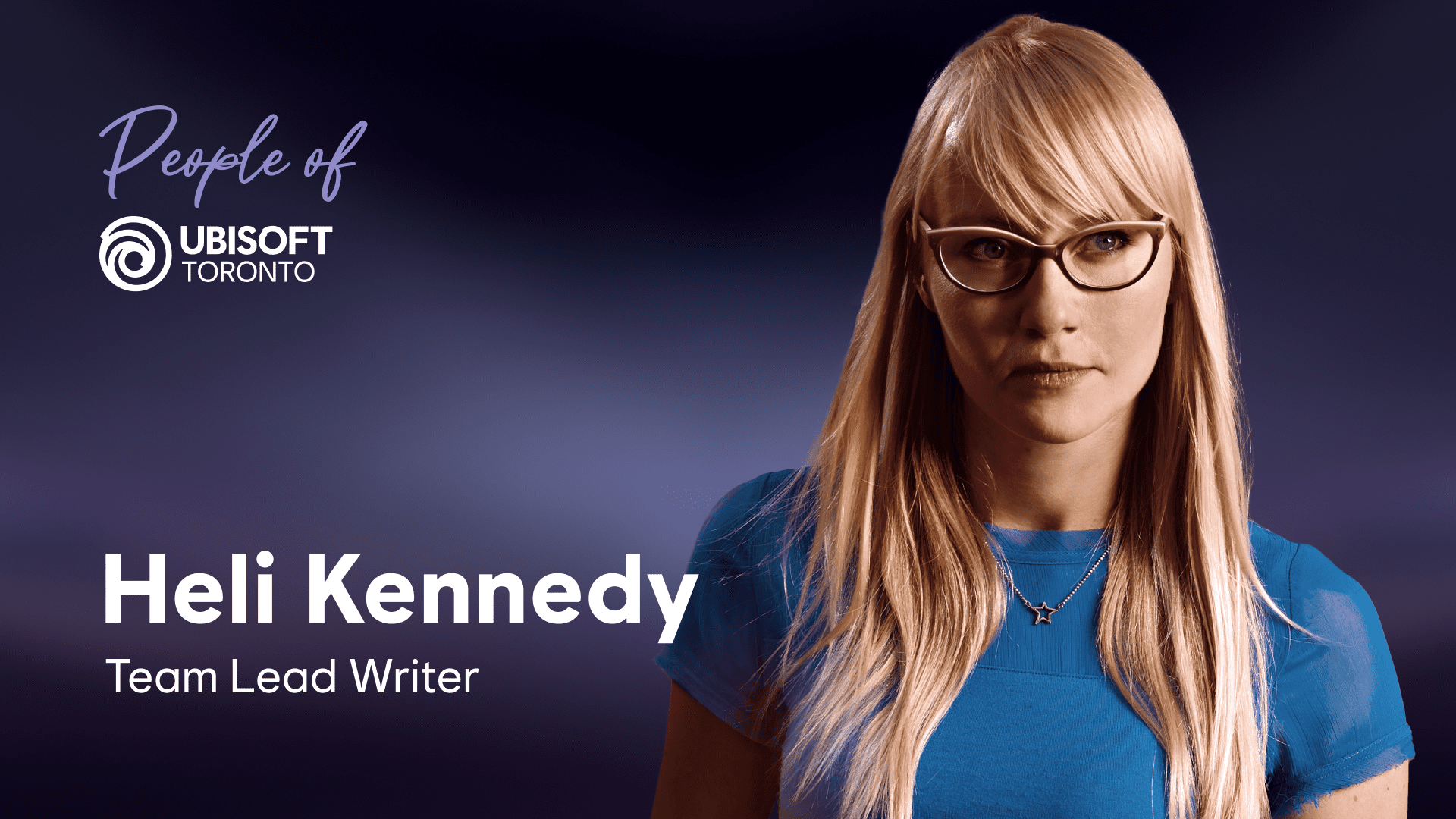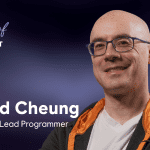A self-professed major fantasy-adventure nerd, Heli Kennedy has been a part of Ubisoft Toronto for five years. After more than 11 years writing for TV, film, and publishing, she crossed over into the video game industry to join the Watch Dogs: Legion team. Heli has also worked on Far Cry 6, it’s free crossover mission The Vanishing and the expansion Lost Between Worlds. Read on to learn more about her career journey, her experience at Ubisoft Toronto, and her advice for aspiring writers.
Hey Heli, tell us more about what you do as a Lead Writer?
As a Lead Writer, I work with directors to pitch ideas for a game’s narrative. I also work with writers and narrative designers by running the writers’ room, where we review scripts, structures, pitches, and any material that requires narrative input. My role also involves a lot of collaboration with various other teams to build characters and incorporate lore into world-building and gameplay. On the production side, I help set deadlines and form roadmaps that allow us to hit milestones in building a game.
FAR CRY 6: LOST BETWEEN WORLDS
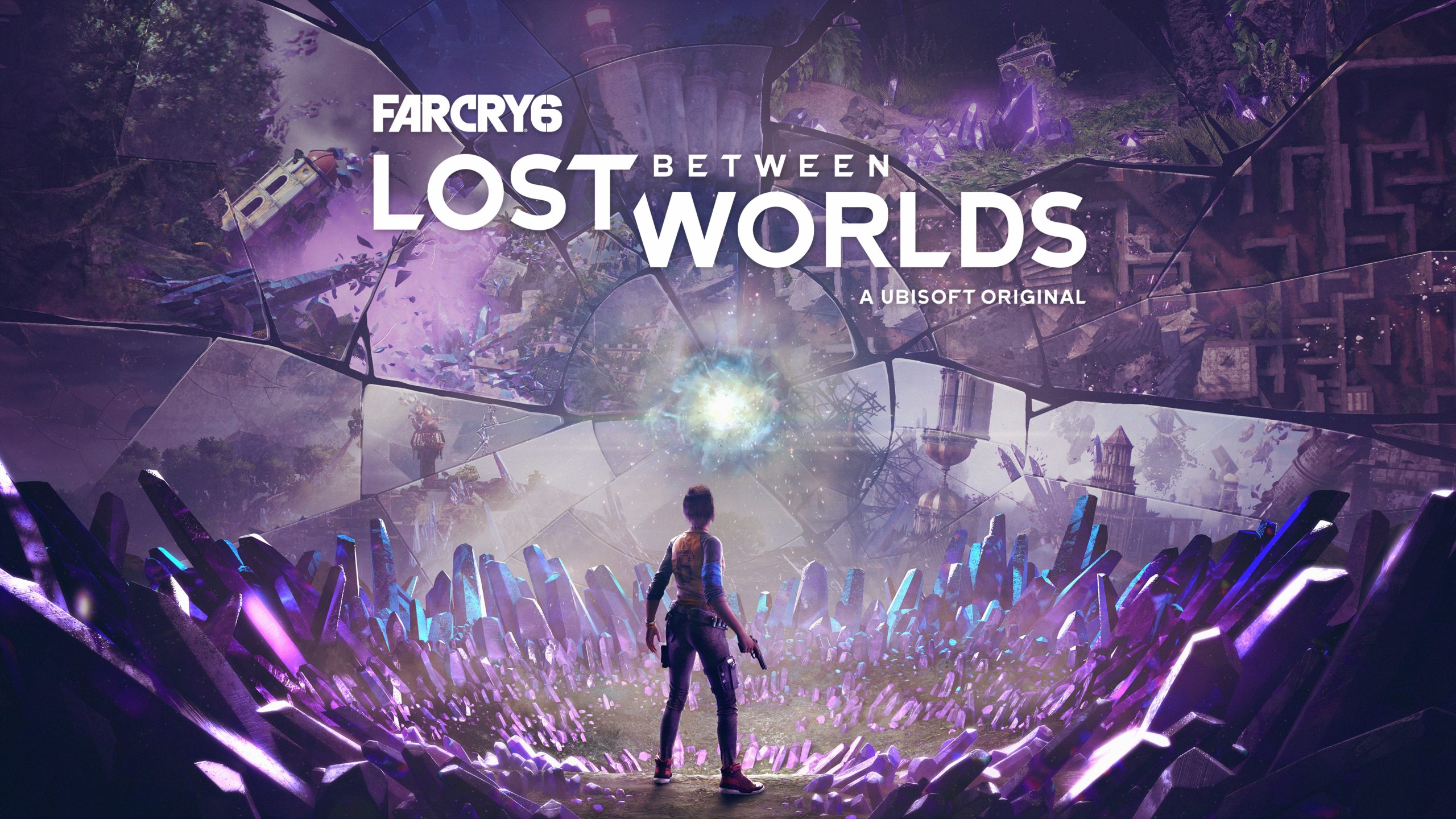
You worked on the Far Cry 6: Lost Between Worlds expansion — can you shed some light on you and your team’s process behind the work and what was the result?
I was the Lead Writer on Lost Between Worlds. Early on, I worked with the narrative team to create story, characters, and world lore that complimented the initial concept. We started off with over a hundred level ideas pitched by everyone on the team, and the concepts that were ultimately greenlit contained a broad array of gameplay elements and styles. To accommodate the highly varied levels, our team pitched about a dozen potential narrative wrappers and storylines before landing on the extraterrestrial, sci-fi concept. We worked to generate a narrative that could both stand alone as a story and knit together the world within this expansion.
Did you encounter any key challenges? How did you and your team overcome it?
One of the key challenges on Lost Between Worlds involved telling a clear story without knowing what the player would be doing at any given time. To achieve this, our writing team created a narrative structure that rested on top of gameplay. Character arcs progress using systemic dialogue that doesn’t rely on specific levels or moments. We also had to tell a story that could evolve if the player replayed levels. This led us to build a five-act story with milestones that play out according to the player’s progression. We filled these acts with the tale of a character experiencing unexpected (and often odd) personal growth. Really, it’s a simple story in a complex structure.
What about working on this expansion has you fired up/excited?
Building this expansion was truly a cross-team collaboration. Everything was built at the same time, which required a lot of creative flexibility and produced limitations. Some would see that as a hindrance, but I found the challenge energizing. It was like solving a giant story puzzle—another game. Having perimeters and obstacles can spur on deeper creativity. They can force you to take ideas to places you normally wouldn’t, to go outside your wheelhouse as writer/narrative designer. Anytime I’m challenged to grow in this way, I’m fired up.
CAREER DEVELOPMENT
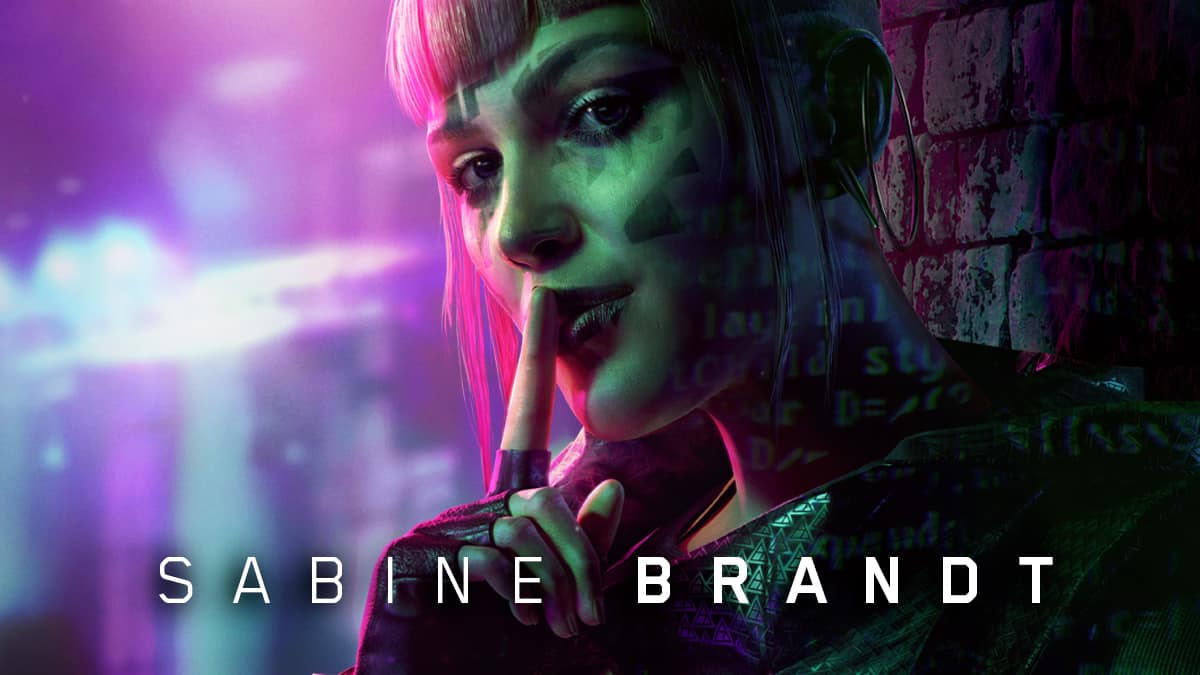
You’ve also worked on Watch Dogs: Legion and Far Cry 6. Can you tell us about a key project you’ve worked on and how you approached it?
Watch Dogs: Legion was quite different from other projects I’ve been on. I wrote the Sabine Brandt storyline while collaborating with a pod of talented level designers. We were a tightknit group that sat together and built out that mission arc with a ton of daily back-and-forth. If something didn’t work in either the gameplay or story, we could all weigh in and brainstorm together on the fly. Creatively, I approached the Sabine story as a noir mystery with a cyber edge and infused it with some heart. I won’t say how I did that (it would be a major spoiler) but grounding the story this way was key to me. I like fantastical/surreal/futuristic tales that unfurl into something relatable and personal. If a story like that can make me cry, bonus points.
Another amazing thing about Watch Dogs: Legion was the number of character voices I got to write in. The game’s core concept is play-as-anyone in London, which required many different character archetypes and backgrounds. The writing team wrote everything from a mouthy urban kid to a posh playboy. Being able to jump between dozens of character voices like that was a writing dream!
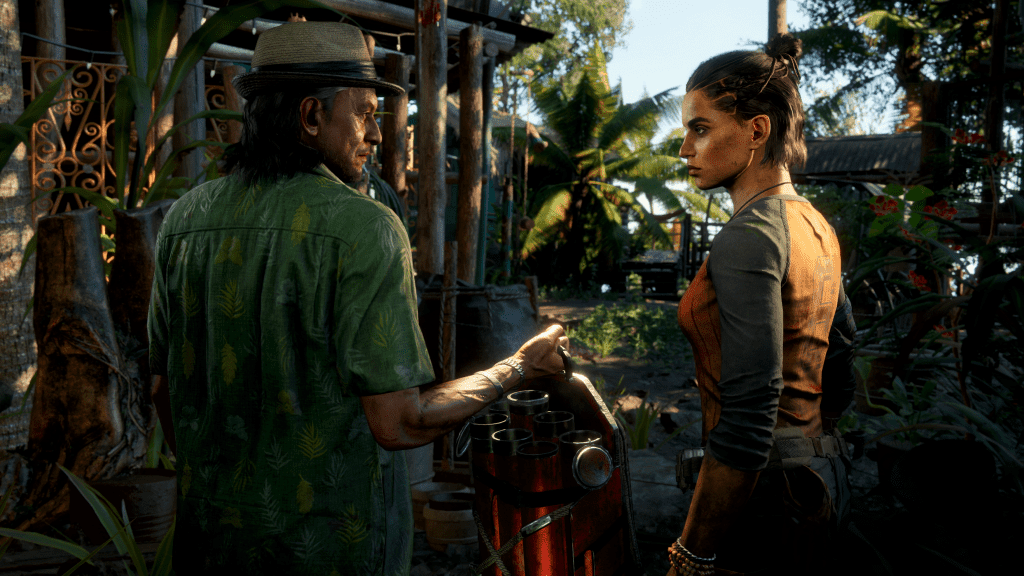
What was it like creating a country for Far Cry 6, narratively speaking?
Collaborating with the World Team and artists to help build Yara was one of my favorite parts of production. The map was huge and creating it required layers of fiction. Specificity was important on both a broad and small scale, so we used various consultants and tons of research to weave details into environmental storytelling. This impacted everything from mineral deposits in a region to the in-world media and Castillo propaganda. We also incorporated centuries of history for the country into each location, considering things like migration, trade, and social movements. I’m proud of the results because the world feels really cohesive, authentic in its foundation, and it’s visually stunning.
What’s the biggest hurdle you’ve overcome in your career and how did you do it?
Early in my career when I didn’t have much produced work, learning to pitch ideas, confidently call myself a “writer,” and network were all hurdles. Actually, they all felt like one giant hurdle because when you utter the words “I’m a writer” to someone, quick pitches and making connections often come next. To get used to this, I forced myself to go to film festival parties, writers’ meetups, and conferences where I could meet professionals. I found great mentors and followed their advice: I called myself a writer and learned how to quickly frame-up my voice and stories—essentially, pitch myself. I also found people to read my scripts, which eventually led to work.
What are some tips you’d give to someone hoping to land a similar role to yours?
Never stop writing, be it films, games, web series, novels, comics, etc… And make it personal. Dig into storylines and characters that speak to you. Write something you’d watch, play, or read. Developing and showcasing your “voice” will make you stand out as a writer. Good narrative requires unique perspectives. And since making a game means working on production, practice making your own content. For example, produce your short screenplay or make a game using Twine. It’s the best way to learn about building something. The productions I’ve worked on have been quite large and complex. I feel my experience in screenwriting and filmmaking helped me both land a writing job and navigate the daily process of collaborating with numerous other disciplines.
LIFE AT UBISOFT
What drew you to Ubisoft Toronto?
At the age of 10, I knew I wanted to work in games. I was a big fantasy-adventure nerd and really loved the world-building aspect of computer games, at the time. Ubisoft’s open worlds, which contain layers of narrative, drew me to the studio. In-depth environmental storytelling is unique to this game genre. The audience can voluntarily explore story and lore on a macro and micro level. (If you want to read all the books in a wizard’s library, you can. Or jump to slaying the dragon.) I also really love working on productions—not just writing in a silo. I was really into the idea of collaborating with a giant team to build out content similar to the scope of a detailed fantasy novel.
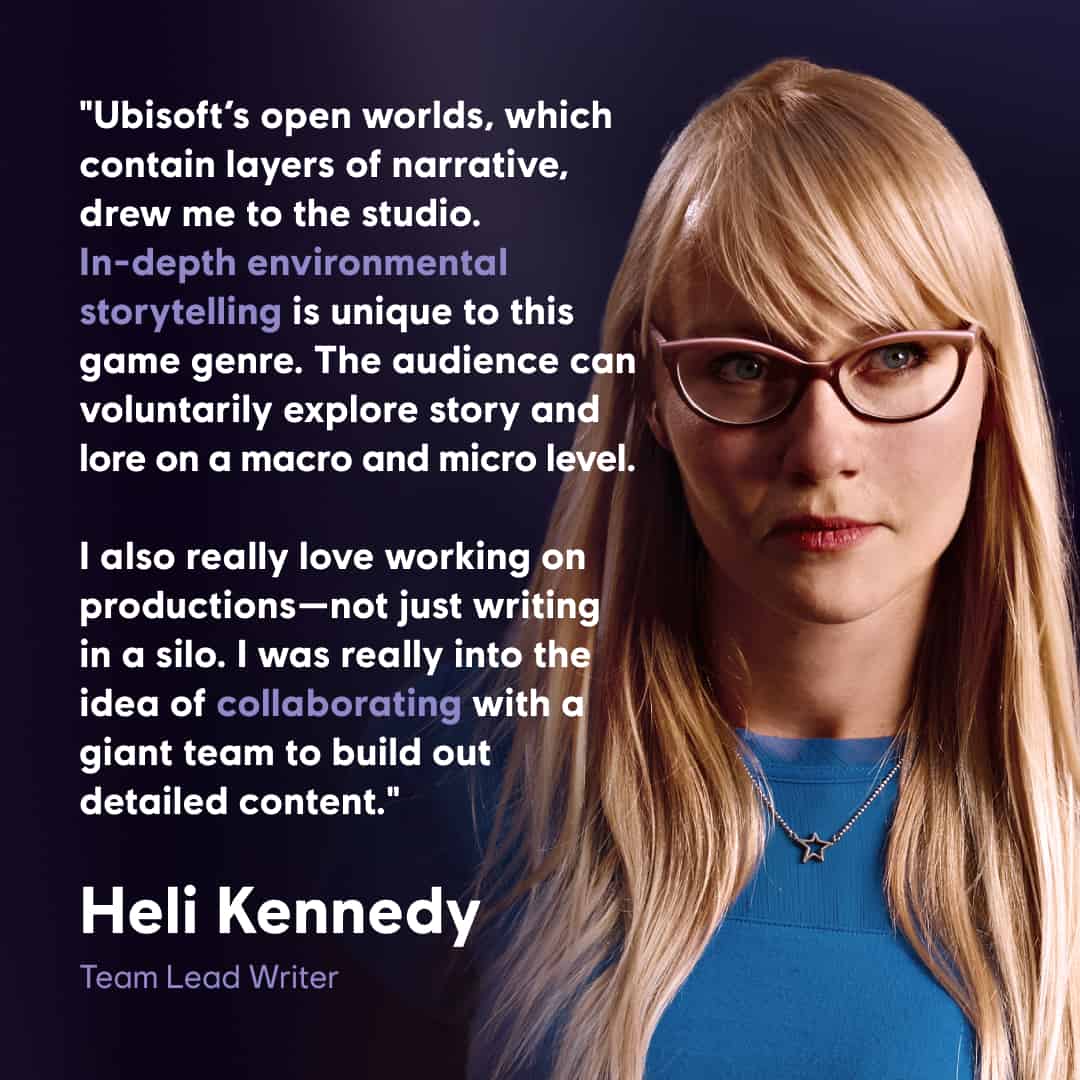
What surprised you most when you joined Ubisoft Toronto?
The number of extracurricular activities, social clubs, and events really surprised me. There was a club for everything—rock climbing, improv, writing with fancy pens… The studio was abuzz with things to do and hobbies to explore, which made it really easy to meet people you weren’t working with.
Can you describe the narrative community within Ubisoft?
The narrative community within Ubisoft is simply awesome. They’re some of the most creative, fun, and interesting people I’ve worked with. Jamming with them on narrative ideas is always a pleasure, even when we hit creative walls. They’re also incredibly good at trivia—and competitive. On top of being wonderful colleagues, I’ve made really good friends working here.
You are one of the co-leads for the Ubisoft Toronto Women and Non-Binary ERG, tell us more about the group and its goals?
The ERG is really meant to be a place (online or IRL) where people can connect, on both a social and/or professional level. We really want to promote an inviting, fun culture here at Ubisoft Toronto, and provide a place where people feel like they can flourish. We also want to support members with professional development in a way that suits them. Mentorships, education, and networking opportunities are just some of the ways we aim to do this.
Why is gender equity important for our studio and the broader games industry?
Striving for equity within the studio, the games industry and, generally, in society is important because everyone should have a voice and presence. Being able to confidently participate in all of those realms spurs on widespread growth in individuals and groups. But people only speak up when they feel safe to do so and have the sense that someone is listening. Inequity doesn’t foster either of those things.
As a writer, I also feel that working toward thoughtful, authentic representation of all genders in games is key to creating both equity and truly compelling creative material. The world is a diverse place, so why shouldn’t our games reflect that?
BONUS
If life were a video game, what cheat code would you want?
Teleportation/fast travel, hands down. I could travel anywhere instantly AND get home in a flash!
———
People of Ubisoft Toronto is a series featuring studio members from a variety of projects and backgrounds as they share their experiences at our studio, perspective of the video game industry and, perhaps, even a sneak peek of what they’re working on! 😉
Our studio values diversity and believes in embracing differences to build stronger and more creative teams. We welcome people who would like to join us and redefine the future of games. Visit our careers page for more information on open roles and how to apply. To know more about our studio members and culture, click here.
